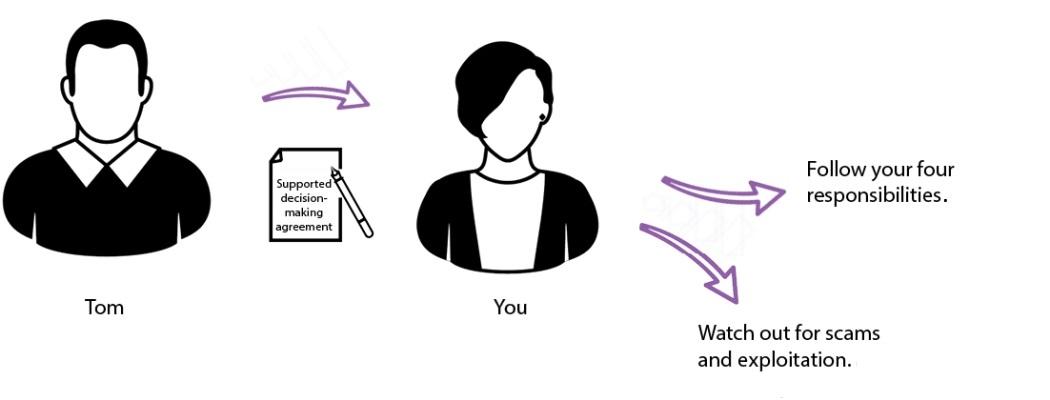Like most people, you may never have been a supporter under a supported decision-making agreement before. That’s why we created Managing Someone Else’s Money in Texas: Help for Supporters Under a Supported Decision-Making Agreement (this “Guide”). A supporter does not actually manage another person’s money, but a supporter’s help can be instrumental in making important financial decisions and other life decisions. This Guide will help you understand what you can and cannot do as a supporter under a supported decision-making agreement. In that role, you have specific fiduciary duties and have been given a high degree of trust and confidence. In this Guide, you’ll find tips to help you avoid problems, as well as resources for finding more information.
This Guide is for family and friends already serving as a supporter under a supported decision-making agreement. It is not meant for professionals or organizations. If you want to learn about how to become a supporter or other alternatives, this Guide is not designed for you. This Guide does not give you legal advice. If you have questions about your duties and responsibilities, talk to a lawyer, read our other guides, or visit the "Seniors and the Law" webpage at TexasLawHelp.org.
How you might have become a supporter
Your family member or friend may be physically or mentally disabled. For this Guide, let’s call him Tom. Tom is not legally incapacitated, so a guardianship is not necessary, but he still needs help making life decisions. To provide that assistance, you and Tom signed a supported decision-making agreement in the presence of a notary or witnesses, making you his supporter.
That agreement gives you the authority to help Tom make important decisions by doing things like gathering necessary information, helping him understand his options, and helping him communicate his decisions. You are authorized only to do what the agreement says you can do. Under the law, you now have specific fiduciary duties, and you have a responsibility to live up to the trust and confidence placed in you.
